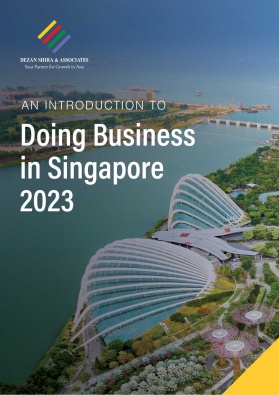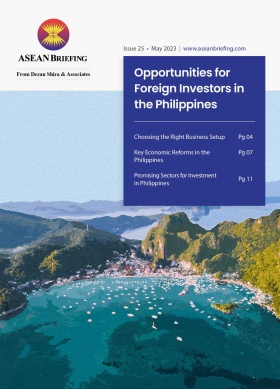U.S.-Southeast Asia Relations in the Biden Era: A Timeline
In this article, we present a timeline that will track key developments affecting bilateral ties between the U.S. and Southeast Asian economies under the Biden administration.
The previous U.S. government under President Donald Trump was passive towards Southeast Asia and the ASEAN bloc and withdrew the U.S. from the Comprehensive and Progressive Agreement for Trans-Pacific Partnership (CPTPP) trade agreement. During his tenure in office starting in 2007, Trump missed three East Asia plenaries and attended only one of three U.S.-ASEAN summits.
The United States became an ASEAN dialogue partner in 1977, 10 years after the founding of the Southeast Asian economic union. Trade in goods and services between the U.S. and ASEAN totaled an estimated US$441.7 billion in 2021, an increase from US$362.2 billion in 2020, and making the US the ASEAN’s second-largest trade partner after China. Further, the US is the largest source of foreign direct investment (FDI) in ASEAN, contributing to approximately 22.5 percent of total FDI into the bloc.
With ASEAN being the U.S.’ fourth-largest trading partner, the region is becoming of increasing importance to U.S. businesses and its government, particularly in the areas of climate, transportation, energy, and healthcare.
September 2023
U.S. Vice President Kamala Harris arrives in Jakarta, Indonesia, for the 43rd ASEAN Summit. Her presence is aimed at erasing doubts about U.S. commitment to the region amidst Joe Biden’s absence at the summit.
President Joe Biden visits Vietnam on September 11, 2023, which has seen new deals on planes and AI. Senior executives from Google, Boeing, Marvel, Intel, Amkor, and GlobalFoundries attended the Vietnam-U.S. Innovation & Investment Summit.
The US and Vietnam also upgraded their nations’ relationship to a Comprehensive Strategic Partnership for the purposes of peace, cooperation, and sustainable development.
July 2023
At the U.S.-ASEAN Post-Ministerial Conference in Jakarta, U.S. Secretary of State Antony Blinken stated that countries in the region should be free to determine their own paths and not through coercion.
His comments came after holding talks with China’s Foreign Minister, Wang Yi.
Blinken also stated that there must be peace and stability across the Taiwan Strait and the freedom of navigation in the South China Sea must be upheld.
November 2022
The U.S.-ASEAN Comprehensive Strategic Partnership was launched.
At the 10th U.S.-ASEAN Summit in Cambodia, U.S.-ASEAN relations were upgraded to a Comprehensive Strategic Partnership. At the summit, President Biden reaffirmed his administration’s support for ASEAN centrality, trade, the digital economy, energy security, sustainable infrastructure, smart cities, and micro, small, and medium-sized enterprises.
The U.S., through the Department of State and the U.S. Agency for International Development (USAID), provided around U.S. $860 million in assistance to ASEAN members throughout 2022.
Biden also attended the G20 Summit in Bali, Indonesia, which marked the first time the group gathered in person since the start of the Ukraine-Russia conflict.
September 2022
The first meeting of the Indo-Pacific Economic Framework for Prosperity (IPEF) takes place.
The IPEF was initiated by the U.S. in May 2022. It marked Washington’s first pan-Asia trade engagement in nearly a decade. However, reception in Southeast Asia remained relatively muted as the IPEF did not provide access to the U.S. market, nor did it offer to liberalize tariffs.
The IPEF as a framework seeks deeper cooperation between participating members in crucial investment and trade matters. The two-day meeting kicked off negotiations centering around four pillars of the framework and concluded the ministerial statements for each. The pillars are trade, supply chain, clean economy, and fair economy.
May 2022
President Biden welcomes Southeast Asian leaders to the first U.S.-ASEAN Special Summit to be held in Washington DC.
Biden announced U.S.$150 million worth of initiatives at the summit to deepen U.S.-ASEAN relations.
The U.S. stated it would assist the Southeast Asian region in the following ways:
- Investing in clean energy infrastructure in the region;
- Fight deforestation and help ASEAN members transition to climate-positive forest economies;
- Develop a U.S.-ASEAN climate solutions hub;
- Cooperation in space for environmental forecasting, disaster management, and food analysis; and
- Accelerating digital development in the region, among many others.
December 2021
The U.S. top diplomat Anthony Blinken visits Indonesia, Malaysia, and Thailand to boost economic and security cooperation.
October 2021
President Biden attends a virtual U.S.-ASEAN Summit, the first in four years by a U.S. president.
He announced plans to invest U.S.$102 million to expand the U.S.-ASEAN strategic partnership in areas, such as the climate, healthcare, education, and the economy.
August 2021
U.S. Vice President Kamala Harris makes a solo trip to Singapore and Vietnam as part of President Joe Biden’s administration to strengthen relations with the Southeast Asian region.
Harris attended a roundtable meeting with the Singaporean business community.
She also became the first U.S. vice president to visit Vietnam where she launched the U.S. Centers for Disease Control and Prevention regional office.
About Us
ASEAN Briefing is produced by Dezan Shira & Associates. The firm assists foreign investors throughout Asia and maintains offices throughout ASEAN, including in Singapore, Hanoi, Ho Chi Minh City, and Da Nang in Vietnam, in addition to Jakarta, in Indonesia. We also have partner firms in Malaysia, the Philippines, and Thailand as well as our practices in China and India. Please contact us at asean@dezshira.com or visit our website at www.dezshira.com.
- Previous Article Indonesia y Perú inician conversaciones de asociación económica
- Next Article Laos – Russia 2023 Relations








